Your Tax Dollars At Work… On Korean Battery Dependence
GM and its Korean battery partner LG Chem have signed licensing agreements with the Department of Energy’s Argonne National Laboratory, giving the two firms access to Argonne’s proprietary lithium and manganese-rich metal oxide mix for use in lithium battery cell cathodes. The material will need “several years of testing” according to The General, but could extend battery life, increase charging voltages and storage, and make Li-ion cells safer. Energy Secretary Stephen Chu says GM’s agreement with the publicly-funded lab
gives General Motors the ability to use cutting-edge battery technology throughout its supply chain. The licensing of this technology will also spur the renewal of the American battery industry, creating hundreds of new jobs where they are needed most.
But that’s not quite the whole story. According to press releases, GM’s deal with Argonne allows the automaker to
to use Argonne’s patented composite cathode material to make advanced lithium-ion batteries
But LG Chem’s agreement allows the Korean firm
to make and use Argonne’s patented cathode material technology in lithium-ion battery cells
In short, a publicly-funded lab has licensed technology in a way that appears to deepen the (partially) government-owned automaker’s dependence on a foreign firm. Confused? So is the mainstream media. And so, to some extent, are we.
Though the mainstream media reports (not to mention Secretary Chu) seem to treat LG Chem as an afterthought in this deal (if they mention the Korean connection at all), the artist formerly known as Lucky GoldStar Chemical is the glue that holds everything together. The Korean chemical giant currently ships Lithium-ion cells (the actual “batteries”) from Korea to Michigan, where GM then uses them to assemble battery packs (in which multiple cells are linked together and managed) for the Chevy Volt. In 2012, LG Chem’s wholly-owned US subsidiary (known as Compact Power, but referred to in the Argonne pressers as “LG Chem Michigan, Inc”) will open a Li-ion cell manufacturing plant on Holland, Michigan which will eventually manufacture cells using Argonne’s technology for the second-generation Chevy Volt.
Those cells will be assembled into battery packs by GM, which is apparently why The General had to sign a licensing agreement to use Argonne’s technology. Of course GM will be testing and evaluating those cells in cooperation with LG, but otherwise, The General’s main role in this announcement appears to be to give a patriotic sheen to a move that cements its dependence on its Korean partner.
After all, without a GM deal to announce, it would be tough for Secretary Chu to tout “the renewal of the American battery industry” by licensing a publicly-funded technology to a Korean company. After all, if LG Chem’s Michigan plant makes it part of the “American battery industry,” wouldn’t every foreign automaker with a US production facility count as “the American auto industry”? Clearly, the Detroit talking points about how it doesn’t matter that transplants hire Americans because “profits don’t stay here” are going to need some recalibration.
And Chu wasn’t the only person hyping this licensing arrangement to gloss over some inconvenient realities. Jeff Chamberlain, who heads Argonne’s Energy Storage Initiative, had this to say:
It is especially gratifying to know that the commercialization of this Argonne-cathode is helping the development of an emerging U.S. battery manufacturing industry, as well as the creation of new American jobs.
The goal of Argonne’s battery research is to support the U.S. automobile industry… The added benefits of this endeavor are the potential creation of U.S.-based green jobs, lessening U.S. dependence on foreign sources of oil and a reduction in greenhouse gas emissions.
American jobs? Sure. The American battery “assembly” industry? OK. But as far as American “manufacturing” and “independence” goes, this deal appears to fall way short. Instead of fostering a true “American battery industry,” this deal merely ensconces a Korean firm at the base of a supply chain that, according to Chu (as well as GM, the Argonne lab and all EV proponents), will supply the future of the automotive industry. It’s one thing for local governments to incentivize the production of transplant manufacturing plants, but it’s quite another for the federal government to do so under the guise of helping an automaker it partially owns.
But this isn’t the first time LG Chem has received assistance from the US government to make Detroit dependent on its cells. After all, its “transplant” factory in Holland, MI is being built using $151m in recovery act funds. Nor is GM the only US-based automaker to slouch towards dependence on the Korean firm: Ford will be using LG Chem battery packs in its forthcoming Ford Focus EV. Where GM simply relies on LG for the basic components of battery packs, Ford will rely on the Koreans for the whole assembly as well as the cells that make it up (but then, Ford’s Focus EV is heavily foreign-firm-dependent in other ways as well).
In fairness, no American firm offers the kind of Li-ion cells needed for automotive applications… which is a problem we’d hope a publicly-funded institution like Argonne (not to mention Recovery Act dollars) would be focused on addressing. For all the support the Obama Administration has given the EV sector, it’s more than a bit galling that none of it has been focused on addressing America’s shortcomings at the base of the EV supply chain. No amount of red-white-and-blue- or green-washing can cover for the fact that any future American EVs will now be dependent on a foreign firm.
Alternatively, America could make its peace with the fact that it’s trading one malignant foreign addiction (Oil) for a more benign but no less foreign dependence. After all, Foreign auto firms hired thousands of Americans over the last several decades to build the cars that Detroit wouldn’t or couldn’t. But if that were to happen, all the bailout-era rhetoric drawing a distinction between the “American” auto industry and the “foreign” transplants would be revealed as the thinly-disguised protectionism it really was. And this announcement would not be used as evidence of the strength of “American” battery and auto industries.
More by Edward Niedermeyer
Latest Car Reviews
Read moreLatest Product Reviews
Read moreRecent Comments
- Probert They already have hybrids, but these won't ever be them as they are built on the modular E-GMP skateboard.
- Justin You guys still looking for that sportbak? I just saw one on the Facebook marketplace in Arizona
- 28-Cars-Later I cannot remember what happens now, but there are whiteblocks in this period which develop a "tick" like sound which indicates they are toast (maybe head gasket?). Ten or so years ago I looked at an '03 or '04 S60 (I forget why) and I brought my Volvo indy along to tell me if it was worth my time - it ticked and that's when I learned this. This XC90 is probably worth about $300 as it sits, not kidding, and it will cost you conservatively $2500 for an engine swap (all the ones I see on car-part.com have north of 130K miles starting at $1,100 and that's not including freight to a shop, shop labor, other internals to do such as timing belt while engine out etc).
- 28-Cars-Later Ford reported it lost $132,000 for each of its 10,000 electric vehicles sold in the first quarter of 2024, according to CNN. The sales were down 20 percent from the first quarter of 2023 and would “drag down earnings for the company overall.”The losses include “hundreds of millions being spent on research and development of the next generation of EVs for Ford. Those investments are years away from paying off.” [if they ever are recouped] Ford is the only major carmaker breaking out EV numbers by themselves. But other marques likely suffer similar losses. https://www.zerohedge.com/political/fords-120000-loss-vehicle-shows-california-ev-goals-are-impossible Given these facts, how did Tesla ever produce anything in volume let alone profit?
- AZFelix Let's forego all of this dilly-dallying with autonomous cars and cut right to the chase and the only real solution.



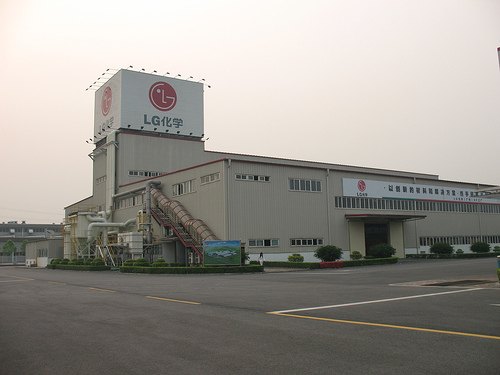















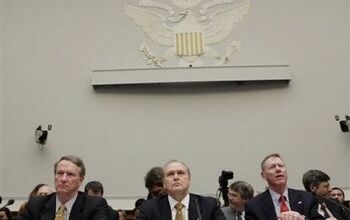
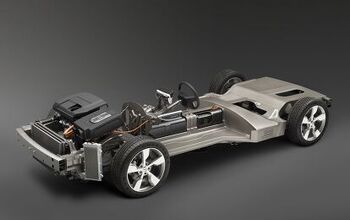
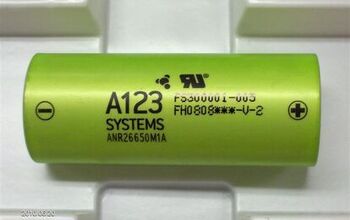









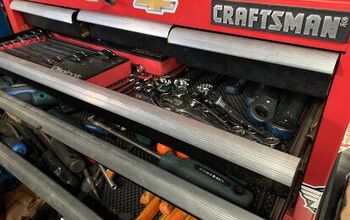


Comments
Join the conversation
Well, this article is a bit one sided. There are examples where American companies are benefiting from Korean battery technology like Johnson Controls buying Delkor, Dow's partnership with Kokam and Ener1's ownership of several Korean lithium battery technologies for use in trucks and buses. So... this Edward person either has an agenda, or he should dig a little more deeper into the Korean/American battery relationship. I'm sure he'll find that it's more balanced than he thinks it is.
@ HoldenSSVSE Thanks for your reply. Yes, I was having a dig at you for your "I’ll keep burning dead dinosaurs" sign-off. Worrying prematurely about "peak lithium" while a non-renewable resource (oil) goes out the tail-pipe is not equivalent.